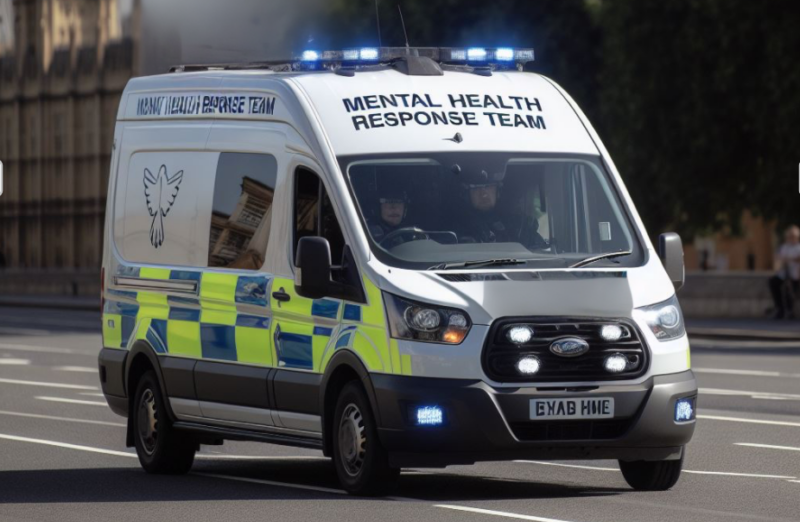The North Carolina Department of Health and Human Services (NC DHHS) announced this week a $1.35 million investment in a pilot program introducing “trauma-informed mobile crisis” teams.
These services will use teams of responders who are trained and experienced in dealing with people undergoing a mental health emergency.
The idea is that these units can respond along with law enforcement or instead of law enforcement since police officers and deputies often don’t have a lot of training in handling behavioral health crisis emergencies.
The mobile units will try to “de-escalate crisis situations and provide appropriate support,” according to a May 8 press release announcing the pilot program.
“Handcuffs and emergency departments can be disorienting and traumatizing for people experiencing a mental health or substance use crisis,” said Kelly Crosbie, the head of the NCDHHS Division of Mental Health, Developmental Disabilities, and Substance Use Services. “By investing in trained responders with mental health expertise, we are building a more compassionate system that prioritizes de-escalation and connects people to the support they need when they need it, setting them on a path to recovery. This is one of the ways we’re shifting our entire system from a state of crisis to a state of care.”
In North Carolina, state health officials say, serious mental illness affects 15 percent of men and 31 percent of women in jails. And 85 percent of the state’s prison population has a substance use disorder or the inmate was incarcerated for a crime related to substance use.
“We’re building the behavioral health care system in North Carolina from the ground up,” said NC Health and Human Services Secretary Kody Kinsley in the press release announcing the program. “By intervening earlier and with better care options, we can break the cycle that funnels people in crisis towards emergency departments and incarceration. This starts with having the right responders to de-escalate situations and connect people with the support they truly need, paving the way for a healthier future for both them and our communities.”
Some of the places the pilot programs will go into effect are Buncombe County, Person County and the City of Burlington.
Under these programs, mental health professionals trained in trauma response will work together with law enforcement to determine the best response when someone is experiencing a mental health crisis.


What, not in Greensboro or Guilford County? They could start with the respective Councils!
Wow…yet more stress for a police officer – keeping a shrink safe from a mental health challenged individual welding a deadly weapon. Sure hope those hired to ride in these clown vans have fantastic health insurance.Gary
Because there is a stigma surrounding mental health issues I would not want a van pulling up in front of my house that says mental health response team. I would not want that for me nor would I want that for either of my kids. It’s a very personal matter and if that van showed up it would let my neighbors know all of our business. So actually it’s a deterrent to getting help.
Good luck and remember to duck
The inmates are running the asylum….